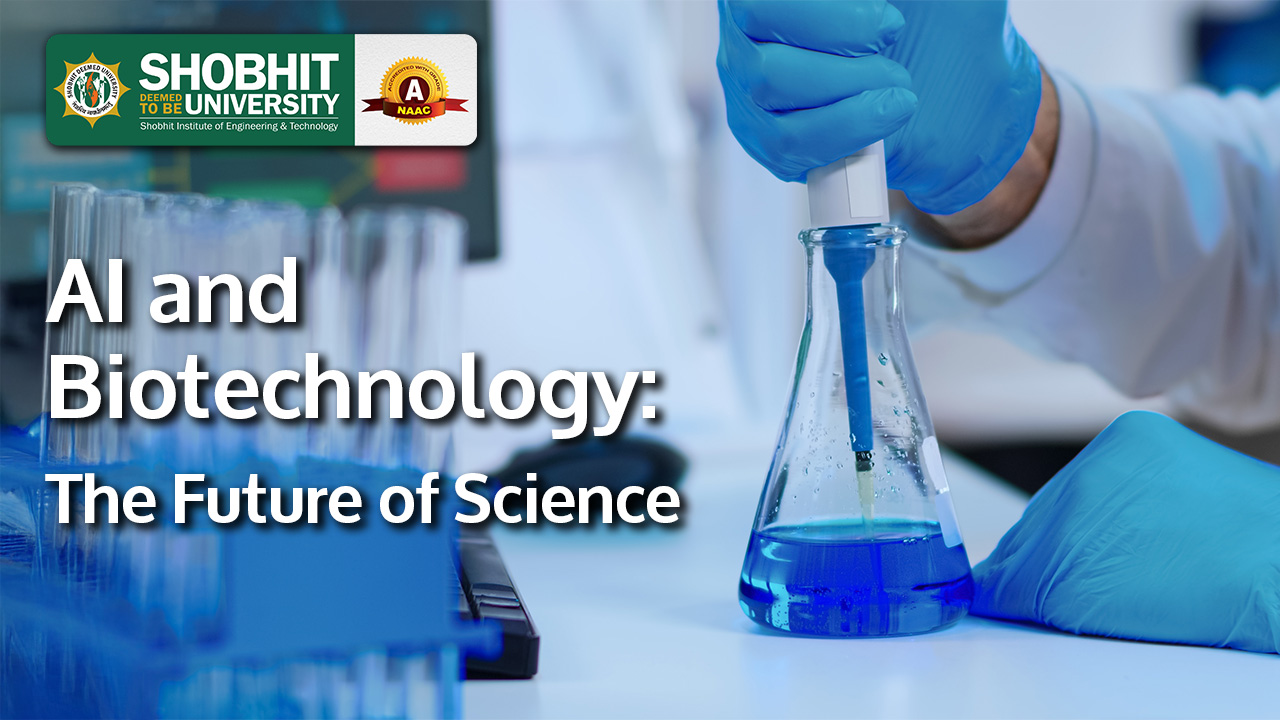
AI and Biotechnology: The Future of Science
Biology is the new frontier for AI, and AI is revolutionizing biology.
This synergy is transforming the way we recover, cultivate crops, and even understand life itself. Envisioning a world where diseases are identified before they cause symptoms, where personalized medication is handcrafted to match symptoms with your genes, and crops are genetically engineered with unprecedented accuracy to survive climate change seemed impossible to imagine even a few years ago, but not only can we imagine that world, but also make it happen. This is no science fiction; it is the result of combining Artificial Intelligence (AI) and Biotechnology, a synergy that is transforming the rules of science and opening up a world of possibilities.
Synergy between AI and Biotechnology
These fields now draw on one another's strengths; biotechnology provides a profound understanding of living systems, while AI offers the force of data-driven discovery.
Biotechnology uses living organisms to deal with challenges such as environmental clean-up and vaccine development, and changes how we understand and approach sustainability, agriculture, and healthcare. When we add artificial intelligence, we see rapid progress.
Algorithms analyse cellular and genomic data in hours as compared to years, identifying patterns that are invisible to the human eye. With previously unheard-of speed and precision, machine learning algorithms predict protein structures, speed up clinical trials, and develop precision therapies. AI essentially provides biotechnology with a supercharged brain and a new set of eyes, accelerating discovery and providing previously unattainable solutions.
Transforming Healthcare, Agriculture, and Environment
AI in Diagnostics and Personalized Medicine
AI and biotechnology are changing diagnostics, personalized medicine, agriculture, and environmental science altogether.
In healthcare, AI-driven imaging models now detect early-stage cancers with accuracy that competes with or even exceeds that of radiologists. Genomic analysis tools recommend personalized treatment plans by optimizing drug types and dosages for each patient’s unique biology. Mental health care gains from AI programs that study brain wave patterns. These programs predict the most effective antidepressants and track behaviour in addiction recovery. They identify relapse risks before they happen.
Biotechnology in Sustainable Agriculture
In agriculture, precision farming platforms use satellite images, weather forecasts, and soil sensor data. They figure out the best times to plant, when to irrigate, and how much fertilizer to use.
These improvements increase crop yields while saving important resources. Biotech innovations also create crops that resist pests, drought, and salinity to protect harvests from climate stress.
Environmental Applications of AI and Biotech
In environmental science, AI processes complex ecological data to track species migrations, identify deforestation hotspots, and model carbon cycles. Bioremediation techniques use engineered microbes to break down pollutants, creating a strong partnership for restoring ecosystems.
Career Opportunities in AI and Biotechnology
In the fast-changing world of AI and biotechnology, many career opportunities have emerged.
Roles in Computational Biology and Bioinformatics
There is a high demand for computational biologists and bioinformaticians to create algorithms that decode genomic and proteomics data. AI researchers for life sciences develop machine-learning models to address complex biological questions. Biotech data engineers construct robust pipelines to analyse big data, whereas synthetic biology designers utilize AI software to design new life forms.
Growth of Pharmaceutical AI Market
Ethics and policy consultants aim to ensure responsible innovation through navigating regulations and earning public trust. The market for pharmaceutical AI will expand from $1.94 billion in 2025 to $16.49 billion by 2034, with a growth rate of 27 percent per annum. This expansion implies that professionals who bridge lab expertise with computer literacy are especially needed.
Challenges and Ethical Considerations
However, great power comes with great responsibility. It is crucial to protect sensitive genetic data from breaches, prevent genetic discrimination by insurers or employers, manage dual-use risks of AI in bio threats, and reduce the carbon footprint of training large models.
Addressing these issues requires teamwork among scientists, ethicists, policymakers, and the public to create frameworks that encourage innovation while safeguarding society.
